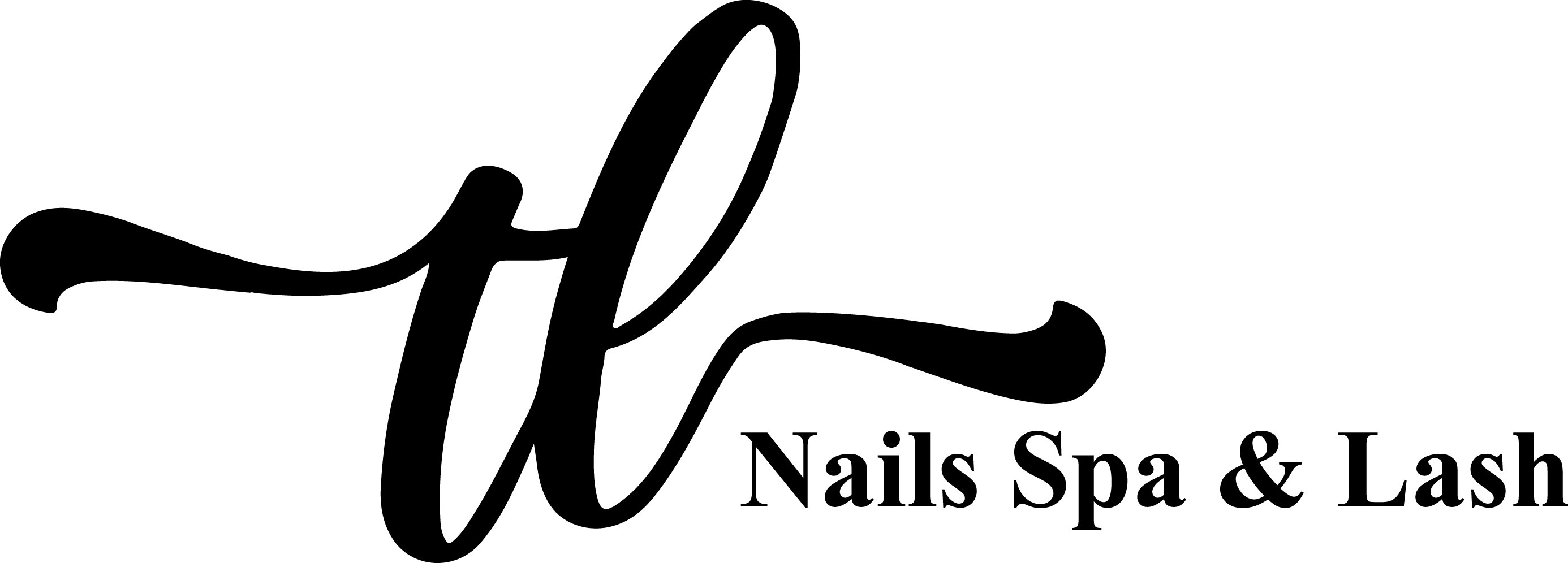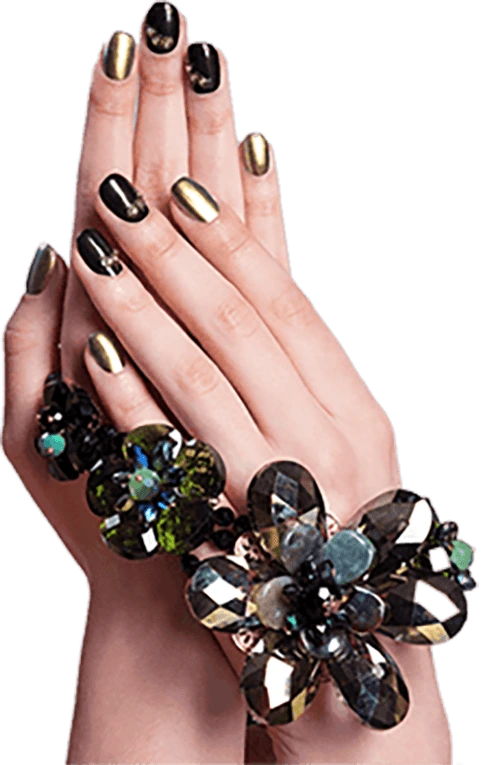Essential Nail Care Tips: A Complete Guide To Healthy And Beautiful Nails
- TL Nails |
- November 10, 2023

Are your nails dry and brittle? Nail care is essential for having healthy, beautiful nails showcased all year round. This article will show you how to take care of your nails in simple steps that can be easily incorporated into a daily routine.
From hydrating the cuticles to avoiding harsh nail products, this guide gives readers the tools they need to get healthy and gorgeous nails with little effort. Get ready to learn the ultimate key tips on keeping your precious digits looking their best – let's explore!
Key Takeaways
- Hydrate and moisturize nails and cuticles regularly using special nail hydrators, coconut oil or other natural oils with vitamins A & E.
- Avoid harsh nail products such as those containing acetone, formaldehyde resin, toluene or dibutyl phthalate (DBP).
- Trim your nails straight across with a slight curve at the sides for strength and prevent build up of germs.
- Protect your nails by wearing gloves when doing household chores, applying a base coat before manicures and avoiding long periods exposed to water.
Importance of Nail Care

Good nail care is essential for overall hand and foot health, not just in terms of their appearance.
Benefits of healthy and beautiful nails
Nail health has a significant impact on overall wellbeing. Strong and aesthetically pleasing nails often indicate good health, while weak and unsightly nails can signal underlying issues.
Maintaining healthy nail care through proper trimming is essential for keeping them strong and less prone to breakage which sometimes occurs due to repetitive behaviors such as typing or biting the fingernails.
An additional benefit of regular trimming is that it prevents overgrowth which can lead to painful ingrown nails. Consistent hydration via cuticle oil around the base of the nail bed helps keep our nails naturally moisturized with crucial vitamins like A and E, leaving them looking glossy, substantially reducing chipping or cracking effects from external elements especially cold air or dry winter months.
Common nail problems
Common nail problems can range from discoloration and infections to splitting or damage. These issues can mark signs of underlying health conditions, such as diabetes and psoriasis. Here is a list of common nail problems:
- Discoloration/White Spots - white spots on the nails could indicate zinc deficiency, injury, or poor nutrition due to inadequate calcium intake
- Fungal Infections - caused by fungi that enter through small cracks in the skin around the circumference of the nails; can cause yellow streaking or crumbling inside and outside the fingernail
- Brittle Nails - thinning or flaking nails may be a sign of dehydration, over-use of harsh chemicals, or excess contact with water
- Onycholysis – pitting on the surface that’s caused by an accumulation of oils between your nail plate and its bed; it can also occur if you use metal tools under your nails
- Bacterial Infections – painful redness at base of nails can be an indication for bacterial infection which needs medical intervention as soon as possible
- Psoriatic Nail Disease - hyperkeratosis present with scaling underneath & around fingernails; this occurs in people suffering from psoriasis
Nail Care Tips for Healthy Nails

Take proper care of your nails by moisturizing them, using gentle nail products and avoiding harsh treatments such as biting or cutting cuticles.
Moisturize your nails and cuticles
Regularly moisturizing your nails and cuticles is an important component of a healthy nail care routine. Moisturizing can help to improve dry, brittle nails, strengthen them against breakage and promote growth.
It’s recommended by dermatologists that you use a special moisturizer or hydrator specifically designed for the nail area 2-3 times per day. Coconut oil is also commonly used as a natural way to hydrate both cuticle skin and nail beds since it contains fatty acids that penetrate deeply into the layers of skin cells.
Moreover, regular moisturization works in synergy with a base coat to ensure long-lasting manicures due to its preventative effect on chipping, cracking or other damage from external factors like water absorption.
Avoid harsh nail products
When it comes to nail care, avoiding harsh products is key for maintaining healthy and beautiful nails. Harsh nail polishes, acetone-based removers, and chemical glues can cause damage to your fingernails by weakening them or causing brittleness.
Common ingredients in these harmful products include acetone, formaldehyde resin, toluene, dibutyl phthalate (DBP) which are all known irritants that are not suitable for routine use on nails.
To maintain strong and healthy nails opt instead for gentle non-toxic alternatives such as water-based polishes with fewer toxic chemicals and glues designed specifically intended as a safe alternative for artificial tips.
Trim and shape your nails
Trimming and shaping your nails is essential for maintaining healthy and attractive nails. Keeping fingernails short will help reduce the risk of trauma while also preventing possible bacteria or dirt build-up under long nails, in addition to reducing breakage.
When trimming, it’s important to use a quality pair of nail clippers as they are designed specifically for cutting back on pointed edges which can hide germs. It’s recommended that you cut your fingernails straight across with a slight curve at the sides -- this helps encourage strength towards the free edge.
Cutting them too short or too round encourages splitting, whereas rounding the corners outwards makes them more prone to chip and peel from water exposure. With regular maintenance including cleanliness, moisturising cuticles and proper filing techniques by using medium grain files (avoiding sawing motion) along with consistent trimming will ensure nourished and strong tips for an overall picture perfect manicure!
Use a base coat
Applying a base coat is an essential step of nail care for healthy and beautiful nails. A base coat helps protects against staining by creating a protective layer on the nails, all whilst keeping manicures looking vibrant and lasting longer.
Base coats also help the polish adhere better to the nail and prevent it from becoming too thick or clumpy - this allows for more effective application while also preventing fading & chipping over-time.
When used with high quality products, base coats can make manicures look instantly glossy and improve its longevity – ensuring that you get your desired results day after day. Incorporating this key component into your daily routine will go a long way in protecting your nails from damage due to harsh chemical exposure while promoting healthier, stronger, and longer-lasting manicures!
Choose high-quality nail products
Achieving strong, healthy nails requires the right care and the use of high-quality nail products. Low-quality products can contain ingredients that damage your nails or irritate skin around them.
When choosing nail polish, look for ones labeled "3 Free" or "5 Free," which means they don't have formaldehyde, toluene, dibutyl phthalate (DBP), camphor, triphenyl phosphate (TPHP) or xylene as ingredients.
These chemicals have been linked to cancer causing agents and may also cause allergic reactions in some individuals. Opt for natural cream polishes and oil treatments made with nourishing oils such as argan, jojoba or extra virgin olive oil to keep cuticles hydrated without pushing bacteria into your skin.
Carefully read product label when purchasing other essential nail items like lotion and sunscreen – you want an SPF level no lower than 15 in order prevent UV damage during long days on the beach! Additionally these can help decrease the predictability of cracking or splitting nails due to environmental factors such as prolonged water exposure.
Practice safe nail art techniques
Having great looking nails through nail art can be a fun and beautiful way to express your style, but it is important to practice safe nail art techniques. To minimize the risk of weakening or damaging your nails, make sure you use non-toxic nail polishes, such as those that are formaldehyde-, toulene- and DBP-free.
When creating intricate designs with dotting tools, brushes and other tools, always ensure that they are clean before use. Consider investing in quality products designed for applying delicate shapes and patterns with precision - this will help reduce breakage caused by rough handling or improper application techniques.
When removing polish after each manicure session, using polymer wraps instead of soak off remover liquids may have less of an impact on the overall strength of the nails. Following these tips will ensure healthy nails so no matter which designs you choose to create for each manicure session!
Protect your nails
Practicing good nail hygiene is one of the most important ways to protect your nails. This includes trimming and shaping them in a gentle curve, avoiding cutting or pushing back cuticles, and limiting contact with water as much as possible.
To keep your nails hydrated and moisturized to stay strong, apply petroleum jelly regularly after washing your hands. Additionally, it's important to wear gloves when cleaning or doing dishes so that you're not exposing them to harsh chemicals which can dry out and damage the nails over time.
Maintaining clean hands is also essential for keeping your nails healthy since dirt on the surface often leads to bacterial infections beneath the nail bed - this can cause discomfort and even discoloration of the nail.
Maintain a balanced diet
A balanced diet is essential to cultivate and preserve healthy nails. Foods like red meat, beans, fish, nuts provide your body with protein that repairs and grows nails as it contains the amino acids our bodies need to promote strong nail growth.
Vitamin C intake can reduce the risk of cracked or loose nails by aiding in the production of collagen in blood vessels walls throughout our body including our nails. Calcium works to prevent dryness and brittleness while folic acid helps prevents hangnails from developing.
Eating a well-balanced diet filled with these essential nutrients will ensure you have all you need for beautiful healthy looking nails!
Give your nails a break
It is important to provide your nails with a break from continuous manicures and nail polish changes in order to maintain their health and beauty. Wearing daily or constant nail polish can weaken the nails, leading to cracking and splitting.
Frequent artificial/gel/acrylic manicures can also cause damage, weakening your nails over time which makes them more prone to breakage. Taking a break from nail polish for at least one week helps strengthen the nails and prevent further damage.
During this time it’s important to still nourish the nails by moisturizing with a thick cream which will help maintain softness and flexibility. Eating an adequate amount of nutrients such as zinc, biotin or silicon will promote healthy growth too.
Daily Nail Care Routine
Establish a daily routine to keep your nails healthy, strong and beautiful, including steps such as moisturizing, filing and protecting your nails.
Step-by-step guide for maintaining healthy nails
- Keep nails clean and dry, by regularly washing hands and avoiding excessive moisture.
- Avoid nail biting as this can cause long-term damage to the nails.
- Use sharp manicure scissors or clippers to trim the nails, leaving them straight across the surface of the finger tip instead of filing into an arc or curve shape which can weaken them over time.
- Moisturize your nails with a quality cuticle oil, cream or lotion to prevent brittleness and cracking caused by dehydration, while also helping your skin absorb more moisture for hydrated cuticles..
- Apply a base coat before adding colour polish to protect your natural nail plate from staining when changing colours frequently and allow for easier removal of old polish 6 .A good top coat helps strengthen brittle fingernail that may be prone to breaking 7 .Use only high-quality nail products since cheap polishes cannot protect against chipping better than higher end brands 8 .Be sure try safe techniques when doing DIY nail art such as using plastic wraps, scotch tape etc 9 Choose length wisely; shorter is always stronger so go no longer than ¼ inch off your fingertip 10 Protect yourself from infection risks like fungus disease avoid visiting places like public Jacuzzis 11 Eat healthy foods especially ones that are high in biotin folic acid zinc vitamin c proteins magnesium iron calcium 12 Give out rests after repairing breakage every other day allowing it time heal & get back full strength
Common Nail Care Mistakes to Avoid
It is important to be mindful of overusing nail polish removers, biting your nails, neglecting cuticle care and ignoring signs of infection.
Overusing nail polish removers
can be incredibly damaging to the health of your nails. They contain harsh chemicals which can strip away essential natural oils from your fingernails, leaving them weak and brittle.
Additionally, many nail polishes require an acetone-free formula when removing them in order to prevent over exposure to damage causing ingredients. Too much use of aggressive buffing, scraping or peeling without proper moisture prior to removal can cause further injury due to trauma and long-term harm leading irreversible thinning of the nail plate - all of which are certainly not ideal for healthy looking hands! Therefore it is important that we limit our use of nail polish removers and choose a gentle formula with care as these proactive steps will assist us in maintaining strong beautiful nails.
Biting your nails
Biting your nails can cause damage to the tissue around them, making them look abnormal. It could also result in soreness and inflammation at nail beds due to germs entering through bites, leading to the risk of infection.
Your nails are especially vulnerable if you already have a weakened immune system from illness or simply poor nutrition as they do not heal quickly. Furthermore, not only does it make you susceptible to disease-causing organisms but also affects hygiene in general by increasing bacteria count on your hands which come into contact with food, people or any other objects during daily activities.
Moreover, repeated nail biting increases the risk of injury caused by sharp pieces of broken skin being ingested that can cause discomfort and stomach issues such as cramps and diarrhea.
Neglecting cuticle care
is one of the worst mistakes you can make when it comes to nail health. Cuticles play a critical role in keeping nails healthy and strong, as they are protective barrier that prevents bacteria from entering the cuticle area and infecting your nails.
When cuticles are neglected or removed, this leaves them exposed and vulnerable to infection. Additionally, dry and brittle cuticles signal imminent damage to nearby nails because they do not provide any moisture or strength to support healthy nail growth or development.
Properly caring for your cuticles means setting aside some time each week for moisturizing them with oil-based products designed specifically for softening cuticles while avoiding over-manicuring techniques such as too much filing or pushing back the skin around your nails too aggressively.
Ignoring signs of infection
Ignoring signs of infection on your nails can lead to undesirable nail conditions. Common signs include redness, swelling, and pus which should be addressed right away with medical attention.
Failing to do so can result in spread of the infection as well as worsening skin irritation and pain. To prevent long-term damage due to infections it is critical that you pay close attention to changes or wounds on your nails contact a doctor if they persist longer than expected.
Proper diagnosis from a doctor will make sure proper treatment is received and ensure further fungi, bacteria or other problematic microorganism aren’t cause for concern down the line.
Conclusion: The importance of consistent nail care for long-term nail health and beauty.
Maintaining healthy and beautiful nails requires consistency, diligence, and patience. Healthy nails come as a result of consistent care, from regular filing to moisturizing cuticles when necessary.
A strong nail bed is the basis for which longer lasting manicures occur—and that foundation is built through proper and thorough routine nail care. Caring for your nails will help keep them strong, promoting a quick recovery in cases where they are damaged or hurt.
Besides preventing common problems like dryness, brittleness, splitting of the free edges/leading edge etc., consistent nail care also helps to reduce the chance of contracting fungal or bacterial infections since such infections can become more likely with weak or brittle nails that have been neglected over time.
In short; taking good care of your nails on a daily basis16 can ultimately improve their overall health and beauty in both the short-term and long-term — so don’t overlook it!
FAQs
1. What are the basic steps to keep my nails healthy?
The basics for taking care of your nails include brushing them with a nail brush, moisturizing them regularly, trimming them as needed, and protecting them from damage by using gloves when doing housework.
2. Should I remove cuticles before applying nail polish?
No, it is not recommended to remove cuticles as this can make your fingers vulnerable to moisture and bacteria. Instead, you should apply a thin layer of cuticle oil first before applying the nail polish.
`





